Optimizing the Carton Printing Process with Inkjet Technology
When it comes to packaging various items, cartons (i.e., foldable boxes made of either paperboard or corrugated cardboard) are one of the most common materials used today. In fact, within the United States alone, more than 80 billion corrugated boxes are used each year, with a substantial amount of these containers being used for either shipping purposes or for directly housing various products.
For both of these functions, legible, well-printed codes are a necessity, either to convey valuable shipping information or communicate expiration dates and stock keeping units (SKUs). If these codes are not included, it can create delivery mishaps, product recall complications, and in some cases, put a company in violation of federal regulations. It should also be noted that, more and more, large retailers are insisting on certain best practices around coding so they can ensure consistency and traceability.
With these important factors in play, having the right technology to reliably create these codes is a necessity. If you’ve been wondering how to optimize your production line for the carton printing process, read on to learn about the notable qualities of this material and which devices/processes are best suited to encode it.
The Unique Properties of Carton Packaging
The reason for the widespread use of cartons in shipping and as product packaging is because they are lightweight, tear-resistant, flexible, and often made from 100% renewable materials. However, none of these qualities necessarily make them particularly print-friendly. On the contrary, cartons possess several specific qualities that can cause printers to make inconsistent results. And as we now know, inconsistent results can cause a multitude of issues you would rather not deal with.
To start, cartons, whether they’re made of only cardboard or a paper/plastic composite, are typically a porous substrate. This means that ink will seep into the material when applied to the surface, leading to blurred and inconsistent markings. While this won’t always make the code unreadable to the human eye, it can have a major impact on scannability—a huge cause for concern given that distributors depend on scannable codes to direct shipments.
Further complicating the carton printing process is how many of these packages tend to be some shade of brown. To read a barcode, scanners need to be able to differentiate between the black ink of a code’s characters and the background that they’re printed on. Consequently, printing on a white surface with black ink will create the highest contrast and, therefore, the most scannable codes. On the contrary, printing on a darker surface will lead to lower-contrast codes that are perhaps unscannable.
Fortunately, with today’s printing technology, there are a number of machines and ink-types that are specifically designed to accommodate these concerns, coming in a variety of forms to accommodate the unique qualities of your production line.
Find the Right Machine to Fit Your Operation
When looking for a device that can both accommodate the porous qualities of most cartons and print at a high enough quality to create scannable codes on a darker surface, two machines stand out from the rest: thermal inkjet (TIJ) printers and high-resolution case coding printers.
A few different considerations will come into play when choosing a model from these two categories. Now, reflecting on the following production-line-related questions will get you started on the right path:
Do You Need Your Printer to Handle Both Porous and Non-Porous Substrates?
Although this article is centered around printing on cartons, the fact remains that many companies have encoding needs that span multiple materials. If your production line needs to handle non-porous surfaces (e.g., aluminum cans, plastic bottles, glass, etc.) in addition to cartons, a TIJ model like the Anser U2 Pro-S is a great option.
In contrast with some other TIJ models, the Pro-S is uniquely designed to be able to use solvent-based ink cartridges that are capable of encoding metal, glass, plastics, and other non-porous substrates. When you need to print on cartons, these solvent-based ink cartridges can be swapped out in seconds for one made for porous printing applications. Not all TIJ printers can offer that kind of substrate flexibility.
Do You Need Printer Mobility?
If your operation requires a printer to be easily moved at a moment’s notice, or for printing on-the-go, a handheld printer like the Anser U2 SmartOne Mobile is a great option. Built with an easy-to-use computer interface and a storage capacity that holds 999 unique codes, this TIJ model is incredibly intuitive, allowing you to quickly train employees on how to operate it within minutes. Combine that with a light-weight construction of only a few pounds, and this machine can be as a mobile as you need it to be.
Do You Need the Highest Resolution Possible?
Although TIJ machines can create codes at a scannable level of 600 x 300 dpi, some enterprises need a bit more power from their printers. If this sounds like your operation, you should look into the capabilities of a case coding printer like the Precision Series 72. Using high-density ink for optimum character clarity, this machine’s 72mm print head allows for reliably scannable barcodes at a variety of sizes. These devices can also be used for graphic images (such as brand logos) and Unicode fonts.
Outfit Your Production Line to Handle the Carton Printing Process
Although carton packaging presents a few unique challenges as a printable surface, picking the right technology will allow you to encode this material without issue. Whether you need to create scannable codes on your shipping boxes, place an expiration date on egg cartons, or just about anything else you can think of, today’s TIJ and case coding printer models can ensure that the job gets done correctly and reliably.
However, if you still have questions about which printer model is right for you, the experts here at InkJet, Inc. are able to give you industry-leading guidance, answer all of your questions, and even perform testing and validation services to be sure you are perfectly outfitted for any and all production needs.
To learn more about the carton printing process, TIJ and case coding printers, and which machines are best suited for you, contact InkJet, Inc. today by dialing (800) 280-3245.



